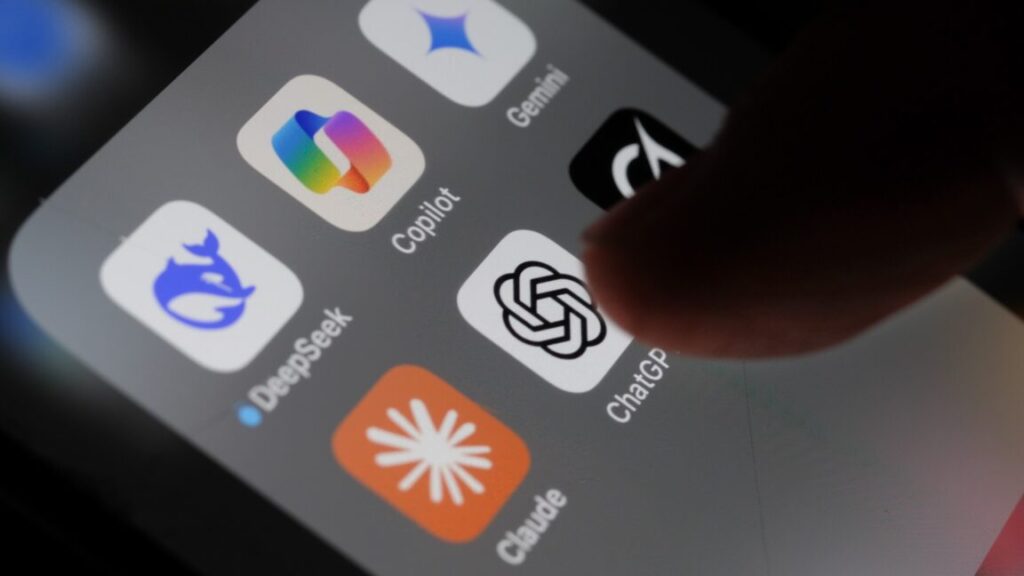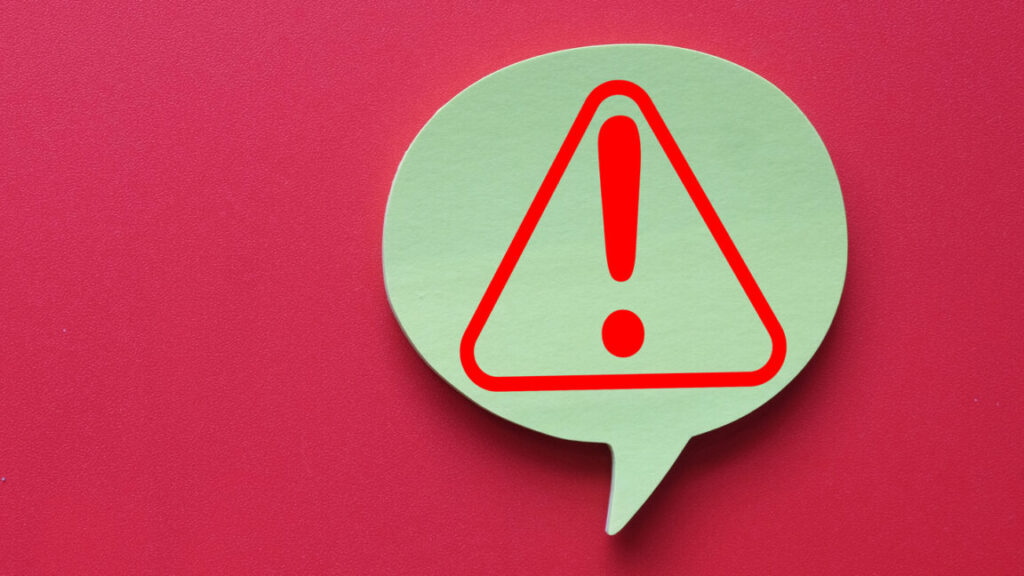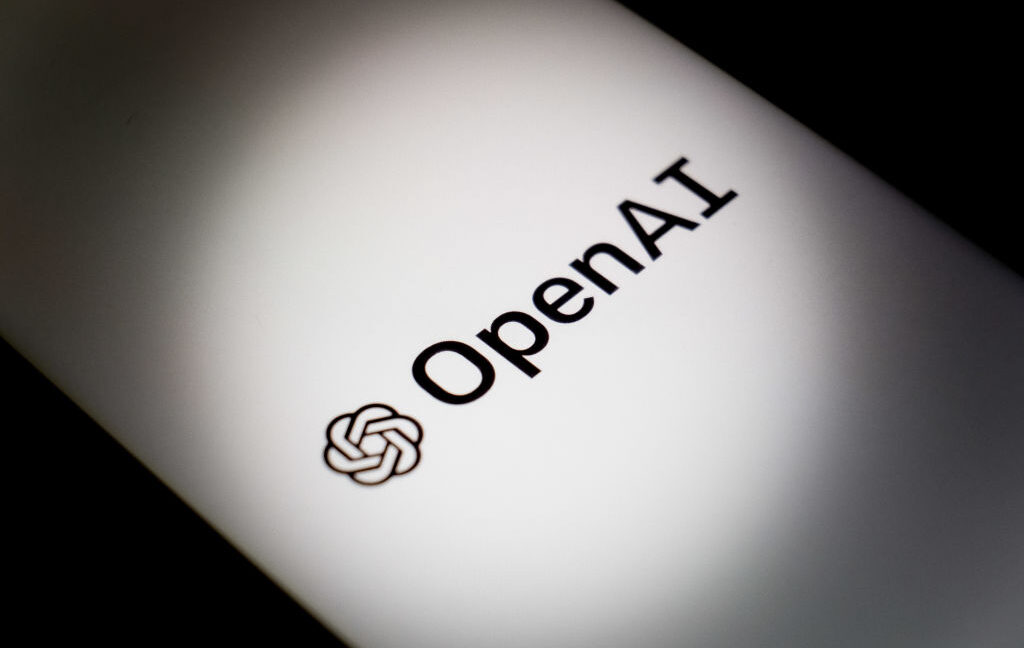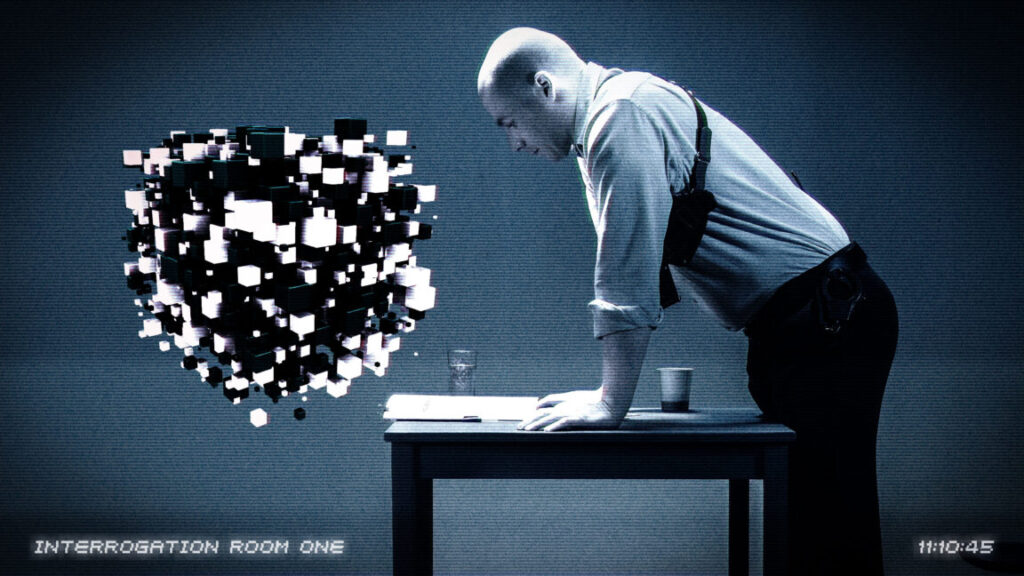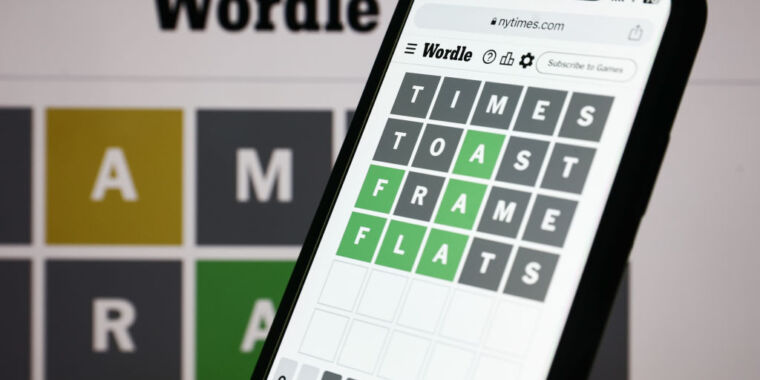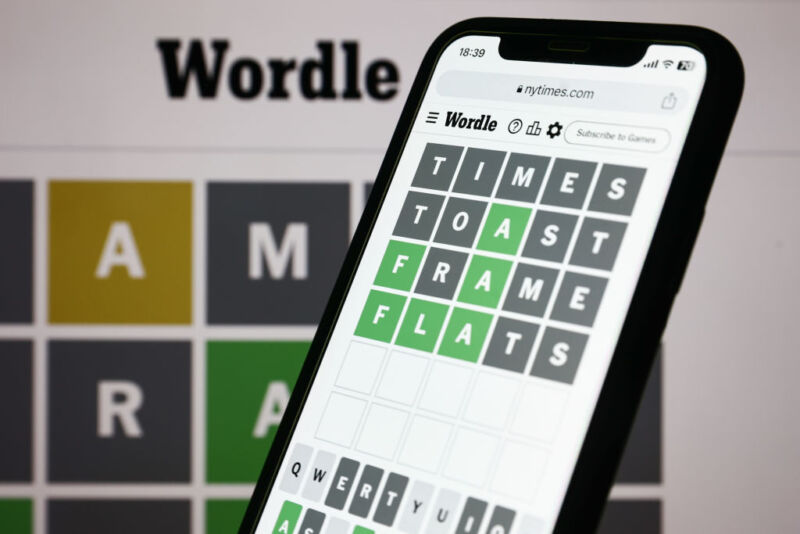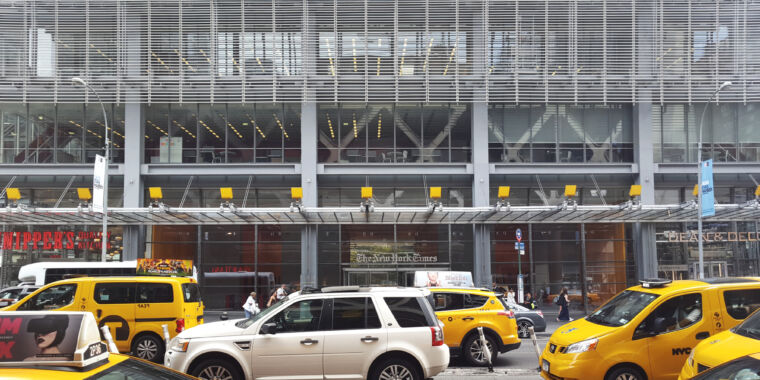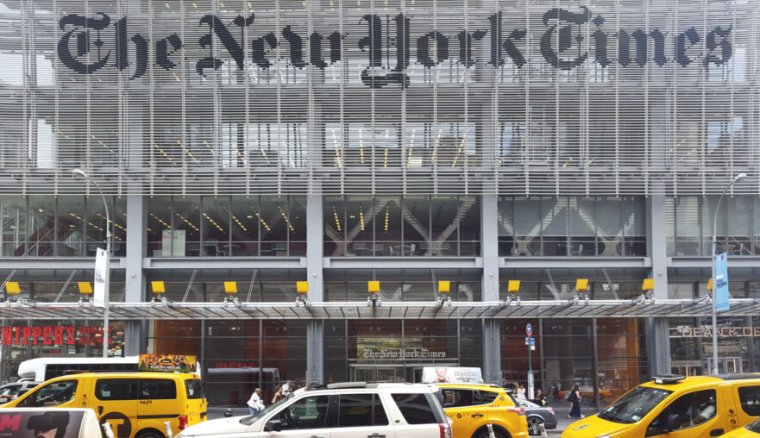OpenAI slams court order that lets NYT read 20 million complete user chats
OpenAI: NYT wants evidence of ChatGPT users trying to get around news paywall.
Credit: Getty Images | alexsl
OpenAI wants a court to reverse a ruling forcing the ChatGPT maker to give 20 million user chats to The New York Times and other news plaintiffs that sued it over alleged copyright infringement. Although OpenAI previously offered 20 million user chats as a counter to the NYT’s demand for 120 million, the AI company says a court order requiring production of the chats is too broad.
“The logs at issue here are complete conversations: each log in the 20 million sample represents a complete exchange of multiple prompt-output pairs between a user and ChatGPT,” OpenAI said today in a filing in US District Court for the Southern District of New York. “Disclosure of those logs is thus much more likely to expose private information [than individual prompt-output pairs], in the same way that eavesdropping on an entire conversation reveals more private information than a 5-second conversation fragment.”
OpenAI’s filing said that “more than 99.99%” of the chats “have nothing to do with this case.” It asked the district court to “vacate the order and order News Plaintiffs to respond to OpenAI’s proposal for identifying relevant logs.” OpenAI could also seek review in a federal court of appeals.
OpenAI posted a message on its website to users today saying that “The New York Times is demanding that we turn over 20 million of your private ChatGPT conversations” in order to “find examples of you using ChatGPT to try to get around their paywall.”
ChatGPT users concerned about privacy have more to worry about than the NYT case. For example, ChatGPT conversations have been found in Google search results and the Google Search Console tool that developers can use to monitor search traffic. OpenAI today said it plans to develop “advanced security features designed to keep your data private, including client-side encryption for your messages with ChatGPT. ”
OpenAI: AI chats should be treated like private emails
OpenAI’s court filing argues that the chat log production should be narrowed based on the relevance of chats to the case.
“OpenAI is unaware of any court ordering wholesale production of personal information at this scale,” the filing said. “This sets a dangerous precedent: it suggests that anyone who files a lawsuit against an AI company can demand production of tens of millions of conversations without first narrowing for relevance. This is not how discovery works in other cases: courts do not allow plaintiffs suing Google to dig through the private emails of tens of millions of Gmail users irrespective of their relevance. And it is not how discovery should work for generative AI tools either.”
A November 7 order by US Magistrate Judge Ona Wang sided with the NYT, saying that OpenAI must “produce the 20 million de-identified Consumer ChatGPT Logs to News Plaintiffs by November 14, 2025, or within 7 days of completing the de-identification process.” Wang ruled that the production must go forward even though the parties don’t agree on whether the logs must be produced in full:
Whether or not the parties had reached agreement to produce the 20 million Consumer ChatGPT Logs in whole—which the parties vehemently dispute—such production here is appropriate. OpenAI has failed to explain how its consumers’ privacy rights are not adequately protected by: (1) the existing protective order in this multidistrict litigation or (2) OpenAI’s exhaustive de-identification of all of the 20 million Consumer ChatGPT Logs.
OpenAI’s filing today said the court order “did not acknowledge OpenAI’s sworn witness declaration explaining that the de-identification process is not intended to remove information that is non-identifying but may nonetheless be private, like a Washington Post reporter’s hypothetical use of ChatGPT to assist in the preparation of a news article.”
The New York Times provided a statement today after being contacted by Ars. “The New York Times’s case against OpenAI and Microsoft is about holding these companies accountable for stealing millions of copyrighted works to create products that directly compete with The Times,” the company said. “In another attempt to cover up its illegal conduct, OpenAI’s blog post purposely misleads its users and omits the facts. No ChatGPT user’s privacy is at risk. The court ordered OpenAI to provide a sample of chats, anonymized by OpenAI itself, under a legal protective order. This fear-mongering is all the more dishonest given that OpenAI’s own terms of service permit the company to train its models on users’ chats and turn over chats for litigation.”
Chats stored under legal hold
The 20 million chats consist of a random sampling of ChatGPT conversations from December 2022 to November 2024 and do not include chats of business customers, OpenAI said in the message on its website.
“We presented several privacy-preserving options to The Times, including targeted searches over the sample (e.g., to search for chats that might include text from a New York Times article so they only receive the conversations relevant to their claims), as well as high-level data classifying how ChatGPT was used in the sample. These were rejected by The Times,” OpenAI said.
The chats are stored in a secure system that is “protected under legal hold, meaning it can’t be accessed or used for purposes other than meeting legal obligations,” OpenAI said. The NYT “would be legally obligated at this time to not make any data public outside the court process,” and OpenAI said it will fight any attempts to make the user conversations public.
A NYT filing on October 30 accused OpenAI of defying prior agreements “by refusing to produce even a small sample of the billions of model outputs that its conduct has put in issue in this case.” The filing continued:
Immediate production of the output log sample is essential to stay on track for the February 26, 2026, discovery deadline. OpenAI’s proposal to run searches on this small subset of its model outputs on Plaintiffs’ behalf is as inefficient as it is inadequate to allow Plaintiffs to fairly analyze how “real world” users interact with a core product at the center of this litigation. Plaintiffs cannot reasonably conduct expert analyses about how OpenAI’s models function in its core consumer-facing product, how retrieval augmented generation (“RAG”) functions to deliver news content, how consumers interact with that product, and the frequency of hallucinations without access to the model outputs themselves.
OpenAI said the NYT’s discovery requests were initially limited to logs “related to Times content” and that it has “been working to satisfy those requests by sampling conversation logs. Towards the end of that process, News Plaintiffs filed a motion with a new demand: that instead of finding and producing logs that are ‘related to Times content,’ OpenAI should hand over the entire 20 million-log sample ‘via hard drive.’”
OpenAI disputes judge’s reasoning
The November 7 order cited a California case, Concord Music Group, Inc. v. Anthropic PBC, in which US District Magistrate Judge Susan van Keulen ordered the production of 5 million records. OpenAI consistently relied on van Keulen’s use of a sample-size formula “in support of its previous proposed methodology for conversation data sampling, but fails to explain why Judge [van] Keulen’s subsequent order directing production of the entire 5 million-record sample to the plaintiff in that case is not similarly instructive here,” Wang wrote.
OpenAI’s filing today said the company was never given an opportunity to explain why Concord shouldn’t apply in this case because the news plaintiffs did not reference it in their motion.
“The cited Concord order was not about whether wholesale production of the sample was appropriate; it was about the mechanism through which Anthropic would effectuate an already agreed-upon production,” OpenAI wrote. “Nothing about that order suggests that Judge van Keulen would have ordered wholesale production had Anthropic raised the privacy concerns that OpenAI has raised throughout this case.”
The Concord logs were just prompt-output pairs, “i.e., a single user prompt followed by a single model output,” OpenAI wrote. “The logs at issue here are complete conversations: each log in the 20 million sample represents a complete exchange of multiple prompt-output pairs between a user and ChatGPT.” That could result in “up to 80 million prompt-output pairs,” OpenAI said.
OpenAI slams court order that lets NYT read 20 million complete user chats Read More »
